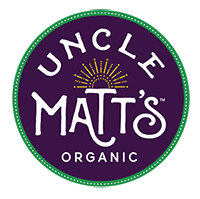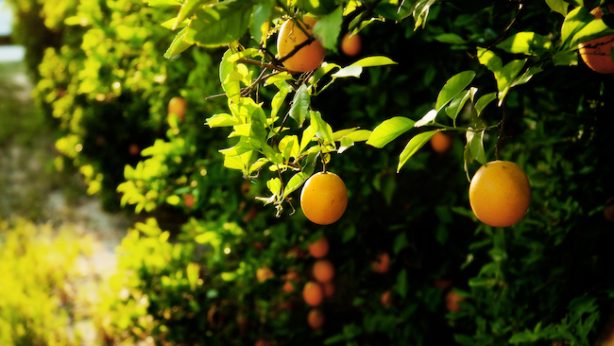Eating clean: Three tips for avoiding chemicals in your food
 It seems like food is getting the blame as the cause of many illnesses and sickness these days. Although we have some of the best health and nutrition education in the world, we’re still addressing significant issues surrounding the American diet. To combat obesity, illness and other diseases, the USDA recommended in 2010 that Americans should fill “half the plate with fruits and veggies” at each meal. Yet, some of us find ourselves second-guessing what’s supposed to be a healthy no-brainer. Maybe it’s due to the fact that much of the U.S. fruit and vegetable supply has been sprayed with pesticides and chemicals that carry long-term health risks.
It seems like food is getting the blame as the cause of many illnesses and sickness these days. Although we have some of the best health and nutrition education in the world, we’re still addressing significant issues surrounding the American diet. To combat obesity, illness and other diseases, the USDA recommended in 2010 that Americans should fill “half the plate with fruits and veggies” at each meal. Yet, some of us find ourselves second-guessing what’s supposed to be a healthy no-brainer. Maybe it’s due to the fact that much of the U.S. fruit and vegetable supply has been sprayed with pesticides and chemicals that carry long-term health risks.
According to the Environmental Working Group (EWG), many scientists and public health advocates believe that a number of increasingly common problems that afflict children, including autism, ADHD, low birth weight, early delivery, asthma, infertility, diabetes and cancer, are linked to exposure to toxic chemicals and pesticides.
A recent study published by the Environmental Health Journal reports that cancer benchmark levels were exceeded by all children tested – 100% – for toxic exposure to arsenic, dieldrin, DDE, and dioxins. Based on the self-reported dietary data, the greatest exposure to pesticides from foods included in this analysis were tomatoes, peaches, apples, peppers, grapes, lettuce, broccoli, strawberries, spinach, pears, green beans, celery and dairy. What’s more, the study showed that pre-school age children had significantly higher estimated intakes of 6 of 11 compounds compared to school-age children.
So what are we to do when what we put on our family’s dinner plate is about as simple as navigating a minefield? We’re offering you three dietary tips that greatly reduce your family’s exposure to chemicals in your food and will help you make informed food choices:
1. Choose organic for all your dairy, fresh fruit and veggies.
It’s an easy rule of thumb: if you’re eating the skin or peel of it, buy it organic. It’s that simple. This advice applies to many of the foods on the “Dirty Dozen: Foods You Should Always Buy Organic List,” including: apples, berries, peaches, tomatoes, grapes, squash, cucumbers, green beans, spinach and lettuce. Since the nutrient density of these foods is so high, why taint the health benefits by choosing ones sprayed with chemicals? Also, when it comes to dairy, what goes into the cow shows up in the milk. So, by choosing organic, you can rest assured that “organic cows” used for milking were fed a diet of grains and grasses that were grown without the use of synthetic fertilizers, herbicides or pesticides.
2. Consume less meat, dairy and fish.
The most Persistent Organic Pollutants (POPs) are found in meat, dairy and fish. POPs are organic (carbon-based) chemicals — products and by-products of human industrial processes — that do not break down, either chemically or biologically, in the environment. They are persistent, meaning that they can be found in the environment for decades and even centuries.
Not only do POPs remain in the environment, they also have a tendency to accumulate in the fatty tissue of animals and humans and have been found in human breast tissue, fish, meat, and dairy products worldwide.
Exposure to POPs has been linked to many health problems, including birth defects, immune system disorders, reproductive health disorders, endocrine and nervous system abnormalities, and cancers. (Source: Healthy Child, Healthy World).
If you don’t want to eliminate these foods altogether, then remove the fat and skin as much as possible when you eat meat and fish since this is where the POPs concentrate. Also, avoid farmed salmon, as it tends to have some of the highest levels of POPs.
3. Lower your intake of processed carbohydrates.
Put away the potato chips. Throw out the cookies. You’ve heard it before: avoid high-carbohydrate processed foods. But do you know why? One partial reason is because those foods have a higher probability of containing “acrylamide.” According to the World Health Organization, “acrylamide is a chemical that is used to make polyacrylamide materials, as well as glues, paper and cosmetics. Acrylamide is also used in the construction of dam foundations and tunnels, and appears to be produced in some foods prepared at high temperatures. Acrylamide is known to cause cancer in animals. Also, certain doses of acrylamide are toxic to the nervous system of both animals and humans.”
So, that begs the question: why is a chemical that is used in construction of dam foundations and tunnels in our food? The answer is that appears to be produced naturally in some foods that have been cooked or processed at high temperature and the levels appear to increase with the duration of heating. The highest levels found so far were in starchy foods (potato and cereal products).
(Source: http://www.who.int/foodsafety/publications/chem/acrylamide_faqs/en/)


